Related Research Articles

The Pulitzer Prize for Poetry is one of the seven American Pulitzer Prizes awarded annually for Letters, Drama, and Music. It was first presented in 1922, and is given for a distinguished volume of original verse by an American author, published during the preceding calendar year.

Imagism was a movement in early-20th-century Anglo-American poetry that favored precision of imagery and clear, sharp language. It is considered to be the first organized modernist literary movement in the English language. Imagism is sometimes viewed as "a succession of creative moments" rather than a continuous or sustained period of development. The French academic René Taupin remarked that "it is more accurate to consider Imagism not as a doctrine, nor even as a poetic school, but as the association of a few poets who were for a certain time in agreement on a small number of important principles".
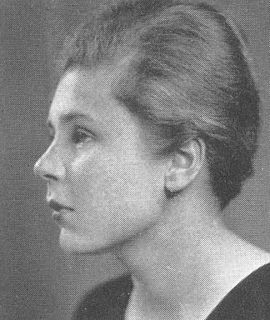
Elizabeth Bishop was an American poet and short-story writer. She was Consultant in Poetry to the Library of Congress from 1949 to 1950, the Pulitzer Prize winner for Poetry in 1956, the National Book Award winner in 1970, and the recipient of the Neustadt International Prize for Literature in 1976. Dwight Garner argued that she was perhaps "the most purely gifted poet of the 20th century".

James Russell Lowell was an American Romantic poet, critic, editor, and diplomat. He is associated with the fireside poets, a group of New England writers who were among the first American poets that rivaled the popularity of British poets. These writers usually used conventional forms and meters in their poetry, making them suitable for families entertaining at their fireside.

James Ingram Merrill was an American poet. He was awarded the Pulitzer Prize for poetry in 1977 for Divine Comedies. His poetry falls into two distinct bodies of work: the polished and formalist lyric poetry of his early career, and the epic narrative of occult communication with spirits and angels, titled The Changing Light at Sandover, which dominated his later career. Although most of his published work was poetry, he also wrote essays, fiction, and plays.
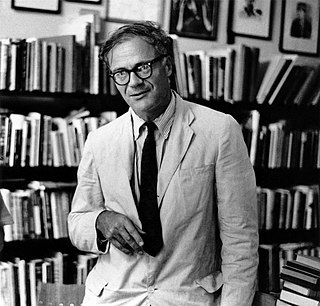
Robert Traill Spence Lowell IV was an American poet. He was born into a Boston Brahmin family that could trace its origins back to the Mayflower. His family, past and present, were important subjects in his poetry. Growing up in Boston also informed his poems, which were frequently set in Boston and the New England region. The literary scholar Paula Hayes believes that Lowell mythologized New England, particularly in his early work.
Confessional poetry or "Confessionalism" is a style of poetry that emerged in the United States during the late 1950s and early 1960s. It is sometimes classified as a form of Postmodernism. It has been described as poetry of the personal or "I", focusing on extreme moments of individual experience, the psyche, and personal trauma, including previously and occasionally still taboo matters such as mental illness, sexuality, and suicide, often set in relation to broader social themes.

Frank Bidart is an American academic and poet, and a winner of the Pulitzer Prize for Poetry.

William De Witt Snodgrass was an American poet who also wrote under the pseudonym S. S. Gardons. He won the 1960 Pulitzer Prize for Poetry.
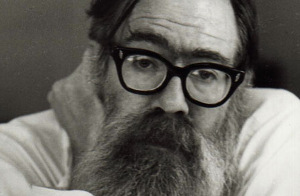
John Allyn McAlpin Berryman was an American poet and scholar. He was a major figure in American poetry in the second half of the 20th century and is considered a key figure in the "confessional" school of poetry. His best-known work is The Dream Songs.
J. D. "Sandy" McClatchy was an American poet, opera librettist and literary critic. He was editor of the Yale Review and president of The American Academy of Arts and Letters.

Robert Ian Hamilton was a British literary critic, reviewer, biographer, poet, magazine editor and publisher.
'Skunk Hour' is one of Robert Lowell's most frequently anthologized poems. It was published in his groundbreaking book of poems, Life Studies, and is regarded as a key early example of Confessional poetry.
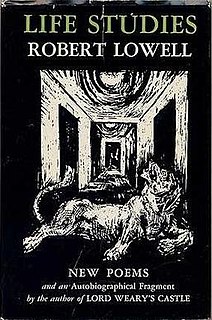
Life Studies is the fourth book of poems by Robert Lowell. Most critics consider it one of Lowell's most important books, and the Academy of American Poets named it one of their Groundbreaking Books. Helen Vendler called Life Studies Lowell's "most original book." It won the National Book Award for Poetry in 1960.
"Beyond the Alps" is a poem by Robert Lowell.
"Waking in the Blue" is a poem by Robert Lowell that was published in his book Life Studies and is a striking, early example of confessional poetry. Of the handful of poems from Life Studies in which Lowell explored his struggles with mental illness, this poem was one of Lowell's most forthright admissions that he was mentally ill. Though he does not discuss the exact nature of his mental illness in the poem, he does describe his hospitalization in a mental institution. Lowell's admission of having spent time in a mental institution was considered a brave one to make when he published the poem in 1959, when public disclosure of mental illness was a serious social taboo.
'Home After Three Months Away' is one of several "confessional" poems by Robert Lowell which appeared in his book Life Studies.
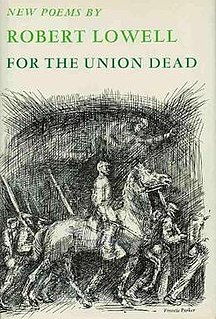
For the Union Dead is a book of poems by Robert Lowell that was published by Farrar, Straus & Giroux in 1964. It was Lowell's sixth book.
Stephen Yenser is an American poet and literary critic who has published three acclaimed volumes of verse, as well as books on James Merrill, Robert Lowell, and an assortment of contemporary poets. With J.D. McClatchy, he is co-literary executor of the James Merrill estate and co-editor of six volumes of Merrill's work.
References
- 1 2 Adam Kirsch (June 18, 2008). "Reconsiderations: 'Life Studies' by Robert Lowell". The New York Sun . Retrieved 20 January 2014.
- 1 2 3 Stephen Yenser (1975). "On "Commander Lowell"". Circle to Circle: The Poetry of Robert Lowell. University of California Press . Retrieved 20 January 2014.